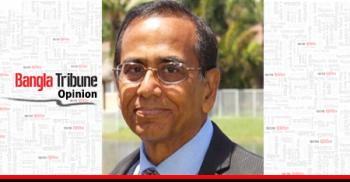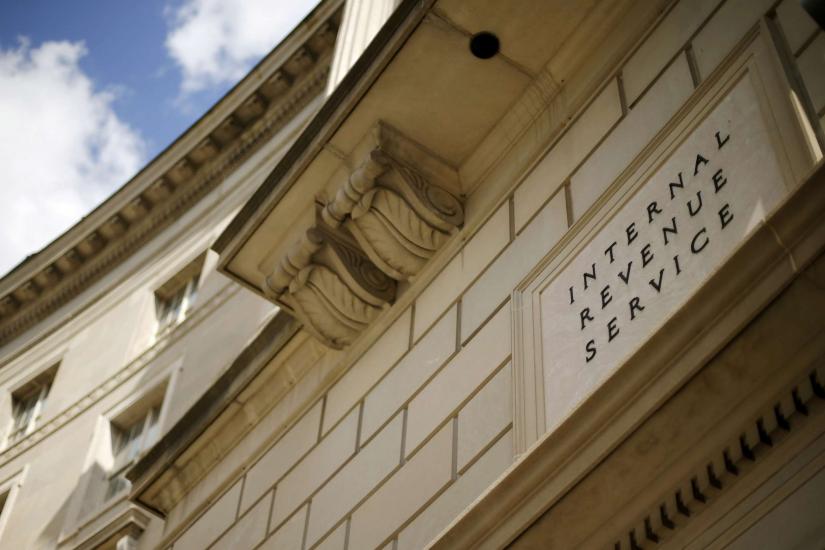 When elected to office, Democrats have loved to go about their businesses, focusing on a priority— such as, raising taxes on the rich. Sen Elizabeth Warren already has a plan to tax the super Americans whom she lovingly calls....’ultra millionaires’. Sen Bernie Sanders also desires to expand the estate tax. Republican Alexandria Ocasio-Cortez has floated the idea of raising the top income tax rate to 70 percent for people making over $10 million a year.
When elected to office, Democrats have loved to go about their businesses, focusing on a priority— such as, raising taxes on the rich. Sen Elizabeth Warren already has a plan to tax the super Americans whom she lovingly calls....’ultra millionaires’. Sen Bernie Sanders also desires to expand the estate tax. Republican Alexandria Ocasio-Cortez has floated the idea of raising the top income tax rate to 70 percent for people making over $10 million a year.
A word of caution. Before this country even endeavors to think about raising taxes, it should grapple with something much more prosaic and banal, but equally important for tackling inequality: saving the US institution of the Internal Revenue Service!
Already, wealthy people and US corporations can easily manage to get around today’s rules. However tough any new laws might seem, I feel certain that they will soon be undercut, or conveniently bypassed!
Slowly and noiselessly, over the past eight years, the IRS has been eviscerated. It has lost tens of thousands of employees, to have retained fewer auditors now, than at any time since 1953. In real dollars, the agency’s budget was slashed by almost $3.0 billion, since the year 2010.
Businesses and the wealthy tend to benefit the most from the current state of affairs. The largest corporations in America had been known to be audited every year. That really started to change, when the cuts began, and today, the audit rate has fallen by nearly half. It is a similar story for individuals making $10 million or more a year: With twice the chance of escaping IRS scrutiny, the ultrarich are much less likely to lose, at the game of audit roulette.
Fixing the problem will require more than increasing the IRS’ budget (though that would certainly help). It is just about having the right personnel with the right skills.
Today, the wealthy and their corporations have the IRS at their wits' end. The ultra-affluent — with the help of legions of tax professionals — make domestic income disappear overseas, or ‘magically’, hide it in a pyramid of partnerships. It is really like trying to take on a modern army, while armed with spears and clubs.
The IRS has some difficulty, in tracing the income of the super wealthy or countering their sophisticated arguments about why or what appears to be one type of income, is actually something else. The agency has also had their trouble valuing their assets (a problem that, as the New York Times had revealed, has dated back, at least to the days when Fred Trump was misleading the IRS about how much his buildings were worth). By the public admission of numerous IRS officials, this institution has been rated to have long continued, with their poor quality of performance, including their job of scrutinizing complicated partnerships, to understand who owns what portion of which stocks (?)
By the public admission of numerous IRS officials, this institution has been rated to have long continued, with their poor quality of performance, including their job of scrutinizing complicated partnerships, to understand who owns what portion of which stocks (?)
It is fairly well known too that the top 0.5 percent of highest-earning Americans, have accounted for about a fifth of the income that’s hidden from the IRS. This was revealed in one of the studies conducted by University of Michigan. Which, simply translates into more than $50 billion a year, in today’s dollars.
It is much easier to enforce the tax laws for the bottom 90 percent of income or wage earners. Wages are reported straight to the IRS, and computers can easily check whether those tax returns had accurately reported their income. This also means that inadequate enforcement of the tax laws necessarily has a regressive effect, liberating those at the top, from scrutiny, while the masses continue to be ‘tracked’ by machines.
With the organization budget slashed, the IRS has pulled back across the board — except for one area where it has been easier to keep the numbers from falling so much: the audits of the ‘poor’ filers. More than one-third of all audit targets are recipients of the earned income tax credit —-one of the nation’s largest anti-poverty programs. By the hundreds of thousands, IRS computers spit out letters that require low-income taxpayers to prove their eligibility.
In United States, the counties with highest audit rates are certainly not found in the hedge fund precincts of Connecticut, or the lobbyist enclaves of Northern Virginia.
No, they’re rural, mostly African American counties, located in the Deep South.
There’s nothing easy about auditing the rich. Even when the IRS has evidence of flat-out cheating, such as when it discovers a hidden Swiss bank account, it can take years of work, to prove its case. Taking such time clashes with one of the core ways the IRS evaluates its managers and agents: how efficiently they work to open and close audits. One senior manager had stated in confidence ‘If you’re not churning out the exams, you have to explain why you’re not.’
However, more than often, the affairs of the super wealthy are diabolically complicated, and the IRS does not have black-and-white proof of evasion. Instead, the agency runs up against what we call ‘aggressive’ planning, in the world of taxation. To the rich, a tax return is just an opening offer, to the government. If they do not get audited, that is great.
However, if they do do, well, they are fully equipped for a fight.
In the year 2009, the IRS had decided to take a bold, new approach to auditing the super wealthy clients. This institution felt inclined to bring specialists together, and form a kind of green-eyeshade-wearing Delta Force. It would finally do something—which it surprisingly — had not been doing before: look at the entirety of a taxpayer’s empire. That meant—-examining how the assesses’s partnerships, limited liability companies, foundations, gifts and overseas operations interacted with one another.
Endowed with the expertise of some really able tax practitioners, the ultra rich have now refined their art of weaving all these together, so they end up with an ultra low, effective tax rate. One such super filer had confided ‘We had not really been looking at it all together, and shame on us’.
An anonymous, former acting commissioner of the IRS, had confided that because of budget constraints and lobbying practices, this elite force were never able to come together. The agency had hoped to have a staff of about 240 expert auditors by 2012. However, by the year 2014 it had only 96, and by last year the number had fallen dismally to 58. Initially spooked by the group’s ambition, tax professionals who counsel the wealthy, now speak of those efforts with a kind of pity.
Criminal tax enforcement has also reportedly faltered.
More than 150 million income tax returns were filed in 2017, but the IRS could only pinpoint fewer than 800 cases, in which someone who had been making legal income, had been charged for crime of evading taxes. That is also one reason why tax cheats can get away with brazen behavior for so long — until they attract the attention of federal investigators for other reasons.
That was exactly what had happened to the former Trump campaign chairman Paul Manafort and the former Trump lawyer Michael Cohen, who had pleaded guilty to tax evasion, and the celebrity lawyer Michael Avenatti, who was also charged with failing to file taxes at all, for several years. (Avenatti has categorically denied the charges)
The big question arises...how do we all go about this, now? One 2020 Presidential candidate, already has a bold proposal to resuscitate the IRS. It is a plan to pump tens of billions into the agency, and enough to fund a second army of agents. That candidate’s name happens to be Donald Trump!
Of course, it was Trump’s party that had gutted the agency, costing the country, in an estimated excess of more than $100 billion in lost revenues. The present President’s 2020 budget however, did propose adding $15 billion over 10 years to the IRS enforcement budget, a genuine initiative that would perhaps, more than double the agency’s overall budget. The administration had earlier estimated, this would likely produce revenue of at least $47 billion. A fresh question arises: Has the administration genuinely had a change of heart? Or is this merely a very neat trick, to make deficit projections appear smaller?
So far, to the best of my information and belief, this is all just plain talk. It is as though, one of the few areas where Trump and Democrats appear to be in substantive agreement. Democrats in the House HAVE recently proposed a $400 million IRS budget increase, for next year.
Among the Democratic presidential candidates, Warren does mention the IRS in her wealth tax proposal. She has called for an unspecified, but ‘significant increase in the IRS enforcement budget’, and a minimum audit rate for taxpayers subject to her proposition of the ‘ultra-millionaire’ tax.
In my humble opinion, simply rising taxes on the rich is a more compelling cause than increasing the operating budget of a bureaucracy. I am certain most American voters will probably hate thinking about this idea. Let us be honest and pragmatic: the boldest tax plan of all starts with salvaging the IRS!
Good luck to all Americans, who continue to pay taxes!
The author is a former educator based in Chicago.
 Opinion
Opinion
30760 hour(s) 6 minute(s) ago ;
Morning 11:00 ; Saturday ; Apr 20, 2024
Who is afraid of IRS? I am!
Send
Nazarul Islam
Published : 19:47, May 09, 2019 | Updated : 12:00, May 10, 2019
Published : 19:47, May 09, 2019 | Updated : 12:00, May 10, 2019
0 ...0 ...
/pdn/aib/hb/
Topics: Nazarul Islam
***The opinions, beliefs and viewpoints expressed in this article are those of the author and do not reflect the opinions and views of Bangla Tribune.
- KOICA donates medical supplies to BSMMU
- 5 more flights to take back British nationals to London
- Covid19: Rajarbagh, Mohammadpur worst affected
- Momen joins UN solidarity song over COVID-19 combat
- Covid-19: OIC to hold special meeting
- WFP begins food distribution in Cox’s Bazar
- WFP begins food distribution in Cox’s Bazar
- 290 return home to Australia
- Third charter flight for US citizens to return home
- Dhaka proposes to postpone D8 Summit
Unauthorized use of news, image, information, etc published by Bangla Tribune is punishable by copyright law. Appropriate legal steps will be taken by the management against any person or body that infringes those laws.
Bangla Tribune is one of the most revered online newspapers in Bangladesh, due to its reputation of neutral coverage and incisive analysis.
F R Tower, 8/C Panthapath, Shukrabad, Dhaka-1207 | Phone: 58151324; 58151326, Fax: 58151329 | Mob: 01730794527, 01730794528


